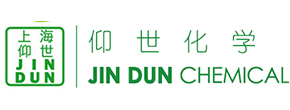G20 Leaders' Declaration: Strive to Triple Renewable Energy Production Capacity
2023/9/11
It is reported that there are still disagreements among the 20 major economies in the world regarding their commitment to reducing fossil fuel use, reducing greenhouse gas emissions, and increasing renewable energy targets.
However, the declaration adopted by the G20 leaders did not mention reducing greenhouse gas emissions. They only stated that member states "will pursue and encourage efforts to double global renewable energy production capacity... in line with their national conditions by 2030
It is understood that the greenhouse gas emissions of G20 member countries account for over 80% of global emissions, and the cumulative efforts of the G20 in reducing carbon emissions are crucial for the global response to climate change.
In addition, the G20 agreed to consider the "national conditions" of each country when gradually reducing "coal electricity use", but did not mention reducing the use of crude oil, indicating that countries such as Saudi Arabia, which are rich in oil resources, have the upper hand in the negotiations.
In terms of gradually reducing fossil fuels, the G20 stated that world leaders "recognize" the importance of accelerating measures that contribute to the transition to low emission energy systems, including efforts to gradually reduce the use of coal-fired power based on national conditions.
At the previous Ministerial Conference on Environment and Energy, the EU was unable to reach a consensus. This declaration also does not promise to achieve net zero emissions by 2050, which the Group of Seven (G7) countries have been promoting.
On the contrary, the declaration states, "We reaffirm our commitment to achieving global net zero greenhouse gas emissions/carbon neutrality by the middle of this century or around, taking into account the latest scientific developments and in accordance with different national conditions
The G20 also pointed out the need to provide low-cost and sustainable financing to developing countries to support their transition to low emissions.
JIN DUN CHEMICAL has built a special (meth) acrylic monomer manufacturing base in ZHEJIANG province. This makes sure the stable supply of HEMA, HPMA, HEA, HPA, GMA with high level quality. Our special acrylate monomers are widely used for thermosetting acrylic resins, crosslinkable emulsion polymers, acrylate anaerobic adhesive, two-component acrylate adhesive, solvent acrylate adhesive, emulsion acrylate adhesive, paper finishing agent and painting acrylic resins in adhesive.We have also developed the new and special (meth) acrylic monomers and derivatives. Such as the fluorinated acrylate monomers, It can be widely used in coating leveling agent, paints, inks, photosensitive resins, optical materials, fiber treatment, modifier for plastic or rubber field. We are aiming to be the top supplier in the field of special acrylate monomers, to share our rich experience with better quality products and professional service.

